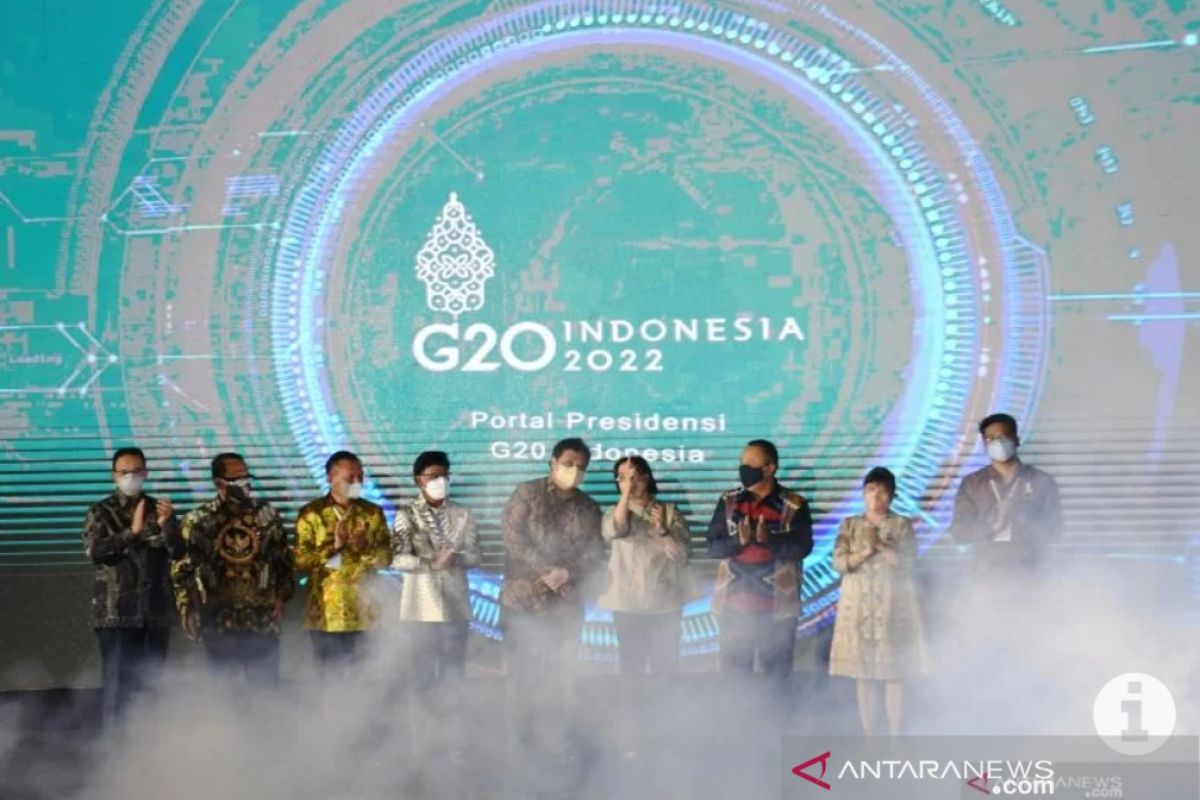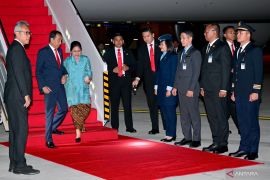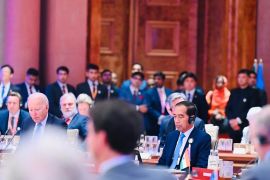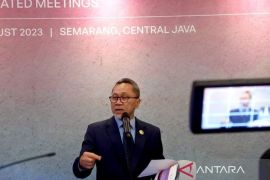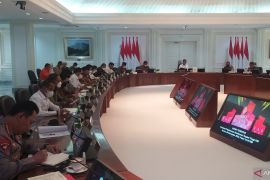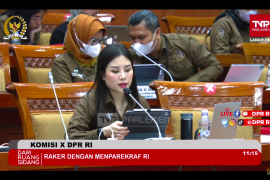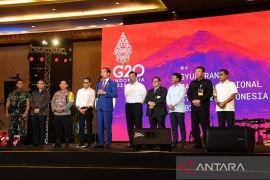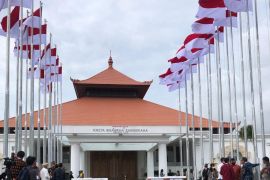Lately, AUKUS, a trilateral security partnership between Australia, the United Kingdom, and the United States, has opened up a geopolitical fault line, with China expressing displeasure over the pact.
The conflict between China and AUKUS has sparked concern from various parties, including the 9th United Nations Secretary General António Guterres.
According to Guterres, the conflict that arose from tensions between China and the US could prove more difficult to navigate compared to the past rivalry between the US and the Soviet Union.
The formation of the AUKUS alliance signals that the United States has shifted its focus from conflicts in the Middle East region to the Indo-Pacific region, especially the South China Sea.
Intelligence, defense, and security analyst Ngasiman Djoyonegoro (nicknamed Simon) said that the conflict between China and AUKUS has made Indonesia a proxy country, or a country that is impacted by a war of influence.
Related news: Indonesia's G20 Presidency to prioritize world health architecture
Indonesia's proxy nation status is attributed to its geographical location between China and AUKUS, he explained. According to Djoyonegoro, this situation can harm Indonesia.
As one of the initiators of the Non-Aligned Movement, Indonesia has established close cooperation with the two conflicting parties, he noted. Moreover, in 2022, Indonesia is expecting to use its G20 Presidency to push global economic recovery, he said.
The G20 Presidency has given Indonesia a strategic position, but raised several challenges at the same time, he observed.
Hence, Indonesia's diplomatic capabilities can create a huge impact, and therefore, they will prove vital in the international political game in the Indo-Pacific region, he added.
Related news: G20 Presidency expected to boost tourism recovery: observer
Impact of the AUKUS-China conflict
According to Djoyonegoro, the AUKUS-China conflict will greatly affect Indonesia's G20 Presidency. This is because Australia, the United Kingdom, the United States, and China are also member countries of the G20, he said.
The four countries will certainly use their power during the G20 meetings to influence other member states to support their intentions and policies, he added.
Not to forget that the United States and China have a very strong economic influence on the global economic order, he said.
Therefore, it is possible for AUKUS and China to use their economic power as a bargaining tool with other countries that could, eventually, influence the stages of decision-making of the G20, Djoyonegoro highlighted.
It is also possible that these countries would direct the G20 agenda to push their own interests, he said.
Their influence could prove a barrier to realizing Indonesia's three main focuses as the 2022 G20 host: inclusive health care, economic transformation that is based on digitalization, and transition to sustainable energy, he added.
Related news: President issues regulation to expedite development ahead of 2022 G20
Moreover, the influence of the AUKUS-China conflict on Indonesia's G20 Presidency may also threaten national stability as the United States and China unceasingly demonstrate the sophistication of their weaponry to intimidate each other, Djoyonegoro said.
Indonesia's geopolitical location in relation to the South China Sea and Australia likely makes it a proxy state for intelligence operations related to AUKUS-China tensions, he pointed out.
Disruption to national stability due to AUKUS-China tensions could prove highly detrimental for Indonesia, he added.
Furthermore, in 2022, there is a possibility of an increase in tensions over the AUKUS-China conflict, he said.
This is due to the complex and multidimensional backgrounds of AUKUS and China, such as the Western Bloc and the Eastern Bloc since the Cold War, the requisition of natural resources located in the South China Sea, and the economic war between the United States and China, he explained.
Indonesian diplomacy
Indonesia is in a very strategic position to direct any agenda that will be highlighted at the G20 Summit, Djoyonegoro said.
It is committed to fighting for the aspirations of developing countries, such as inclusivity, and striving for island countries through the transition to renewable energy that must not flounder due to the AUKUS-China conflict, he added.
According to Vice Minister of Foreign Affairs, Mahendra Siregar, Indonesia will fight for the interests of island countries during its G20 Presidency.
This is demonstrated by the fact that for the first time in history, the G20 Presidency has decided to invite small archipelagic countries, represented by the Caribbean Community (CARICOM) and Pacific Islands Forum (PIF), Siregar pointed out.
The discussion on the transition to green energy is very important and will mirror the perspective that Indonesia, as both a developing nation and an archipelagic country, is affected by climate change, he observed.
Related news: Bali airport ready for G20 Summit: Angkasa Pura
However, Indonesia must be able to firmly differentiate between G20 agendas that are actually based on the economy and those that are based on tensions in the South China Sea region, observers said.
The trust that has been given by the world to Indonesia as the G20 host in 2022 is a golden opportunity to maximize efforts to realize its commitment, which is to produce concrete actions for global recovery from the COVID-19 pandemic crisis, they added.
Furthermore, through diplomacy, Indonesia must be smart in utilizing its influence to embrace G20 member countries, especially those in the Indo-Pacific region, for the sake of maintaining peace and reducing conflicts in the region, they said.
Indonesia's success in leading G20 countries can deplete the possibility of AUKUS-China using their influence to steer the G20 agenda based on their own interests, they added.
Related news: Ministry endorses Indonesia's G20 priority agendas
Therefore, Indonesia must direct its full attention to face the AUKUS-China conflict assertively and wisely.
Not only that, in anticipation of Indonesia becoming a proxy country in the AUKUS-China conflict, the government must rush to modernize Indonesia's weaponry as a form of diplomacy while guarding national stability, analysts said.
At the same time, by highlighting the concerns of countries across the world, especially G20 members, Indonesia can overcome the conflict of interest between AUKUS and China while actualizing the theme of "Recover Together, Recover Stronger", they added.
Related news: Indonesia should champion investment for small-scale farmers at G20
Related news: Indonesia fights for island countries' interests during G20 Presidency
Translator: Putu S, Kenzu T
Editor: Fardah Assegaf
Copyright © ANTARA 2022
